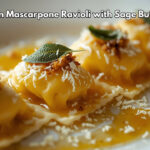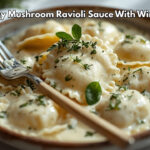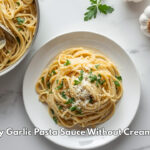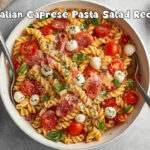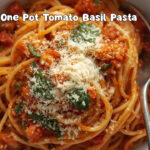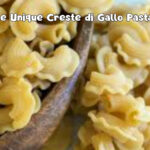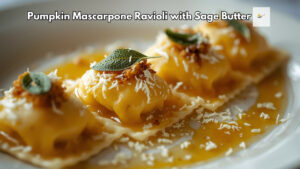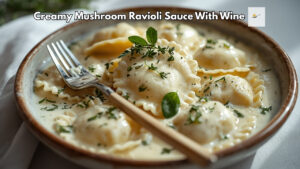Table of Contents
ToggleWhen it comes to making delicious pasta, the pasta seasoning you choose can transform a simple dish into something truly special. As a pasta lover, I’ve spent years experimenting with different herbs, spices, and seasonings to enhance the flavors of my meals.
The process of seasoning pasta properly is an art that can magnify a natural flavor, making every bite a delightful experience. In this guide, I’ll share everything you need to know about pasta seasoning, from types of spices to creating your own homemade blends, all while keeping it simple and straightforward.
What is Pasta Seasoning?
Pasta seasoning refers to the mix of herbs, spices, and other flavorings that enhance the taste of pasta dishes. The right combination of these elements can heighten the flavors of your meal, taking it from ordinary to extraordinary. Understanding the various seasonings, including herbs, spices, and acids, is crucial in developing rich, flavorful sauces.
Types of Seasonings Used in Pasta Dishes

1. Herbs
Herbs are essential for adding fresh flavors to pasta. Here are some popular ones:
- Basil: A classic in Italian cooking, basil is perfect for tomato sauces and pesto. Fresh basil has a sweet and slightly peppery flavor that shines when added to a preparation just before serving. The timing here is crucial; I usually add it near the end of cooking to keep its delicate flavor intact.
- Oregano: This herb has a robust and slightly bitter flavor, making it a great addition to tomato-based sauces. Dried oregano is often added early to allow its flavors to develop fully.
- Parsley: Often used as a garnish, parsley adds a bright, fresh taste to any pasta dish. It pairs well with almost any sauce and can be chopped finely or used as whole leaves for decoration.
- Thyme: With its earthy flavor, thyme is an excellent choice for creamy sauces. It holds up well during cooking, making it perfect for simmering in alfredo or carbonara sauces.
2. Spice Seasonings
Spices add warmth and depth to pasta dishes. Here are some frequently used ones:
- Garlic: Whether fresh, powdered, or roasted, garlic is a staple in my kitchen. Sautéing minced garlic in olive oil releases a wonderful aroma and makes a good infusion base for many sauces.
- Black Pepper: This common seasoning enhances almost any pasta dish. Freshly cracked black pepper adds a sharper flavor than pre-ground varieties. Combining black pepper and basil can particularly improve flavor in many recipes.
- Red Pepper Flakes: Red pepper flakes are perfect for those who enjoy a bit of heat. Just a sprinkle can elevate a simple dish to something exciting.
- Nutmeg: A hint of nutmeg can enhance creamy sauces. Adding a pinch to your carbonara or alfredo sauce provides a warm and aromatic touch.
3. Saline Seasonings
These include salt and salty ingredients like soy sauce or anchovies. Saline seasonings are crucial for enhancing the flavors of all the other ingredients, so they’re usually added early in the cooking process.
4. Acid Seasonings
Acidic ingredients such as lemon juice or vinegar brighten up dishes. Squeezing lemon over pasta adds freshness, while balsamic vinegar can provide a sweet-tangy note. I always keep a lemon handy when I’m cooking pasta!
5. Hot Seasonings
Add cayenne pepper or hot sauce to your pasta dishes if you enjoy spice. Adjust the amounts according to your heat preference for a more personalized dish. I enjoy experimenting with different heat levels in my pasta sauces, depending on my mood.
6. Condiments
While not traditional for pasta, condiments like ketchup or mustard can be used creatively. Some people enjoy a touch of mustard in creamy sauces for an unexpected twist. This understanding divides seasoning and condiments into categories that can affect the food you prepare.
If you’re looking for more information, I’m sharing a Quora forum that might help: What seasonings and spices can go on pasta?. This resource contains valuable insights and suggestions on enhancing your pasta dishes with various seasonings and spices.
How to Create Homemade Pasta Seasoning Blends
Making your pasta seasoning blend is simple and rewarding. Here’s a basic recipe that you can tweak based on your preferences:

Essential Homemade Pasta Seasoning Blend Ingredients:
- One tablespoon of dried basil
- One tablespoon of dried oregano
- One teaspoon of garlic powder
- One teaspoon of onion powder
- One teaspoon of black pepper
- 1/2 teaspoon red pepper flakes (optional)
Instructions:
- Mix the ingredients: In a small bowl, combine all the ingredients. Adjust the quantities based on your taste preferences.
- Store the blend: Transfer the seasoning blend to an airtight container and refrigerate it. It should last several months but be adequately kept to prevent it from going rancid.
How to Use Seasonings in Pasta Dishes
Understanding when and how to use seasonings can significantly enhance your cooking. Here’s how I approach seasoning:
Cooking Stage
- Start with aromatics: I always begin by sautéing onions and garlic in olive oil. This creates a flavorful base for the pasta.
- Add dried herbs and spices early: Their flavors infuse the oil and pasta.
- Fresh herbs go in last: I add fresh herbs like basil near the end of cooking to keep their delicate flavors bright. The timing ensures that they retain their aromatic qualities.
- At the Table
Some seasonings are best added to the table. Common table seasonings like salt and pepper allow guests to customize their meals. I often encourage friends to add their touch to their pasta!
Here’s another valuable resource that includes a YouTube video link for better understanding: Spices for Plain Pasta on Reddit. This forum explores various spices that can enhance your pasta dishes. It’s a great way to find inspiration and improve your cooking!
Pizza Seasoning Recipe | Italian Seasoning Recipe – Dominos Style Seasoning
Adjusting to Personal Taste
Every pasta dish is an opportunity to experiment. Here are a few dishes and how you can adjust the spices:
- Spaghetti Marinara: Add more oregano and red pepper flakes for a bolder flavor. If you like it mild, reduce the pepper flakes.
- Pesto Pasta: Increase the amount of basil and consider adding Parmesan cheese for a richer taste.
- Alfredo Sauce: A touch of nutmeg can elevate the creaminess. Adjust the black pepper for personal preference.
- Pasta Primavera: This dish is perfect for experimenting with fresh herbs like parsley and thyme. I often play around with different combinations of vegetables to see what works best.
Exploring Non-Culinary Uses
Interestingly, many herbs and spices have non-culinary uses. Some can be used in natural remedies or for creating fragrant home products. Researchers have found traces of beneficial properties in various herbs that make them versatile beyond the kitchen.
Conclusion
Pasta seasoning is essential for creating delicious meals. With a bit of creativity and an understanding of the various herbs and spices, you can elevate your pasta dishes to new heights. I’ve found joy in experimenting with flavors and discovering the perfect balance for my taste buds. So next time you prepare pasta, remember the seasonings! The right seasoning can make all the difference, whether it’s a sprinkle of basil, a dash of red pepper flakes, or a homemade spice blend.
Feel free to explore, experiment, and enjoy the delightful world of pasta seasoning. Happy cooking from Pastasphere!
FAQs About Pasta Seasoning
1. What are some essential seasonings for pasta?
Common seasonings include basil, oregano, garlic, black pepper, and Parmesan cheese.
2. When should I add seasonings to my pasta?
Dried herbs and spices should be added early in cooking, while fresh herbs are best added near the end to maintain their delicate flavor.
3. Can I use infused oils for pasta?
Yes! Infused oils can add unique flavors to your pasta dishes. Experiment with different herbs to find your favorites. They serve as a good infusion base for many recipes.
4. How can I experiment with pasta seasoning?
Try different combinations of herbs and spices, and feel free to mix cuisines. You might discover a new favorite!
5. Are there any non-culinary uses for seasonings?
Yes, some herbs can be used in natural remedies or for creating fragrant home products.




